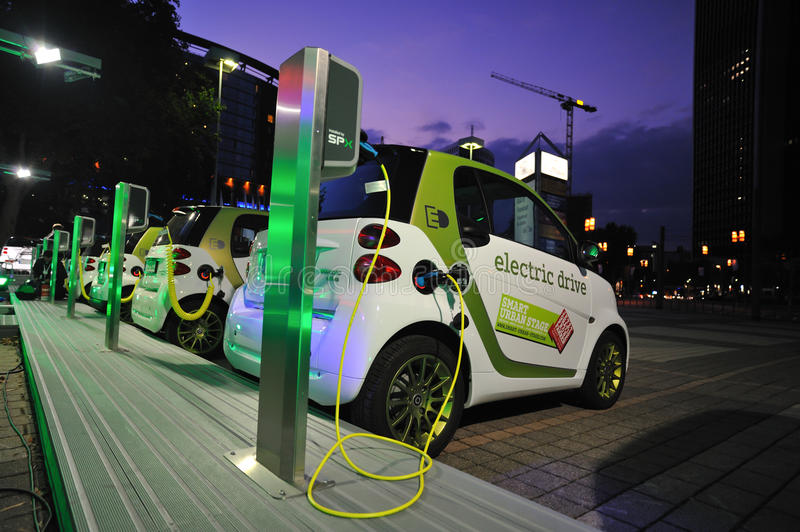EV Tax Benefits in India: In India, the government is encouraging common people to shift from fuel-engine vehicles to electric vehicles. This is being done to preserve the limited fossil fuels and make the environment a better place to live. As the price of petrol and other fuel is increasing rapidly, it has influenced the consumer to shift to electric vehicles from gasoline-powered vehicles. Electric vehicles are not only safe for the environment but it is also cost-efficient and has tax advantages in India.
As per Indian tax laws, buying a car for personal use is considered a luxury product. A salaried professional does not get any tax benefit on an auto loan. In order to promote electric vehicles, the government came up with a new section under Indian tax law. This new law is to exempt electric vehicle owners from paying taxes.
In India, with the shift in the buying patterns to electric vehicle cars from gasoline-powered vehicles, companies, and manufacturers are working very hard to launch new models of electric vehicles. These new models will be equipped with the latest and high-end technologies.
Tax deduction on Loan for EVs
Under section 80 EEB, a person is exempted from paying off tax on buying an EV of Rs 1,50,000. This tax exemption is available on the purchase of two-wheeler and four-wheeler electric vehicles.

Eligibility Criteria
There are some limits or eligibility criteria given by the government that an individual needs to fulfill. These are required in order to take advantage of this tax deduction. As a result, an individual cannot claim any other advantage and the provision if an individual is from a Hindu undivided family, AOP, Partnership firm, a company, or any other type of taxpayer.3
Conditions to be Fulfilled
There are a few conditions that are applied under the section 80 EEB which are-
- An individual can avail themselves of this exemption only once. As a result, the person who qualifies for Section 80 EEB loan tax reduction is an individual who has never owned an electric vehicle before.
- An individual who is financing an electric vehicle is exempted. The individual should take a loan to finance an electric vehicle from a financial institution or non-banking financial corporation company.
- The tax exemption is given to those who have paid off any electric vehicle loan accepted between April 1, 2019, and March 31, 2023
- The incentives under Section 80 EEB are available from the financial year 2020-2021 onwards.
- People who are taking a loan to buy an electric vehicle are eligible to get tax exemption. They will be exempted under section 80 EEB of Rs. 1,50,000. This tax benefit tempts salaried individuals to consider purchasing an EV as their next car.
Where India Stands
How India copes compared to other countries when it comes to electric vehicle incentives?
The center has taken steps to encourage the use of electric vehicles and has promoted state governments to provide centers for their purchase in order to fulfill its commitment under the Paris Climate Accords. The Ministry of road transport and highways announced in August, that electric vehicles will not be subjected to “fees for the purpose of issuing or renewing registration certificates”.
The government has already reduced the GST component for electric vehicles to 5%. Under the Faster Adoption and Manufacturing of Hybrid and Electric Vehicles (FAME-II) project, four-wheeler EVs can receive a maximum subsidy of Rs 1.5 lakh. Two-wheelers can receive a subsidy of up to 40% of their purchase price.If you are looking for bracelet. There’s something to suit every look, from body-hugging to structured, from cuffs to chain chain bracelet and cuffs.
State Wise Subsidies and EV Tax Benefits in India
Separate from those offered under FAME-II, state governments are also offering incentives and subsidies for the purchase of electric vehicles.
Maharashtra gives a maximum subsidy of Rs 2.5 lakh for electric vehicles and SUVs. This is very high compared to maximum subsidies of Rs 1.5 lakh in Delhi, Gujarat, Assam, Bihar, and West Bengal. In addition, Odisha offers a Rs. 1 lakh subsidy, while Meghalaya offers a Rs. 60,000 subsidy. For the purchase of electric two-wheelers, subsidies ranging from Rs 5,000 to 30,000 are offered in Delhi, Maharashtra, Meghalaya, Gujarat, Assam, Bihar, West Bengal, Rajasthan, and Odisha.

Calculation Of Subsidy
In order to understand the EV Tax Benefits in India, Let’s take an example of an electric car base model to get an idea of the price and discount. According to cardekho.com, the ex-showroom cost for the Mahindra e2o plus P4 basic model in Mumbai is around Rs. 7.46 lakh. Your EMI will be Rs. 15,947 if you take a loan for the total amount with a five-year repayment period and an interest rate of 10.25%, with around Rs. 9,500 going towards principal and Rs. 6,374 going towards interest.
The exemption will be available for loans provided by a financial institution during the period from the beginning of April 1, 2019, to March 31, 2023. It is also mentioned that no exemption will be available for such interest for the same or any consecutive year.